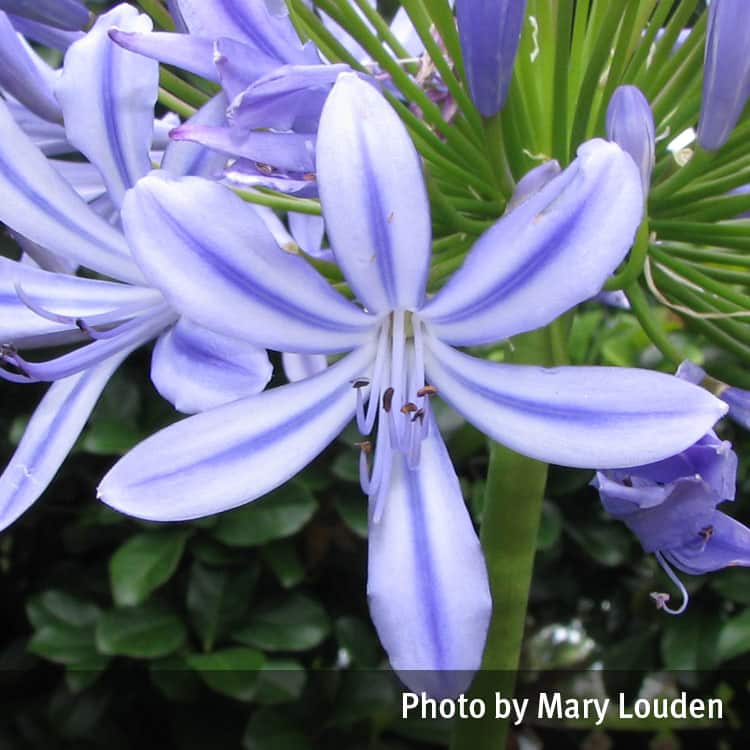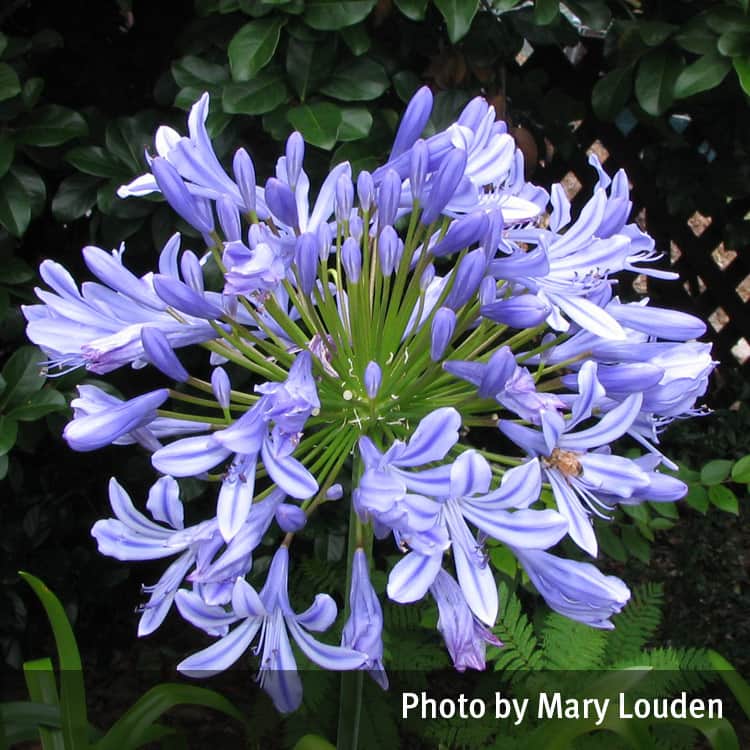Warning
Seek medical attention for all ingestions.
Description
Agapanthus flowers are deep blue fading to purple, sometimes white, bell-shaped and clustered together in a large mass at the top of a long erect stem to 1m arising from the clusters of leaves.
Agapanthus leaves are strap-like, 30-70cm long and up to 1.5cm wide, glossy green to dark green and somewhat fleshy.
Toxicity
Symptoms
Symptoms may include nausea vomiting, abdominal pain and diarrhoea if ingested, with severe ulceration of the mouth from the clear sticky sap. Skin contact with the sap may cause a burning sensation, skin irritation and rashes.
Images


Details
Common name: Agapanthus
Botanical name: Agapanthus species (most common species A. africanus, A. praecox subsp. orientalis, Agapanthus hybrid cultivars)
Other common names: African lily, blue African lily, blue lily
Family: Alliaceae
General description: An ornamental clumping perennial to 50cm, popular as a garden or pot plant.
Flowers: The flowers are deep blue fading to purple, sometimes white, bell-shaped and clustered together in a large mass at the top of a long erect stem to 1m arising from the clusters of leaves.
Leaves: The leaves are strap-like, 30-70cm long and up to 1.5cm wide, glossy green to dark green and somewhat fleshy.
Fruit/Berries: –
Other: All parts of the plant are poisonous, especially the rhizome or root, leaves and sap.